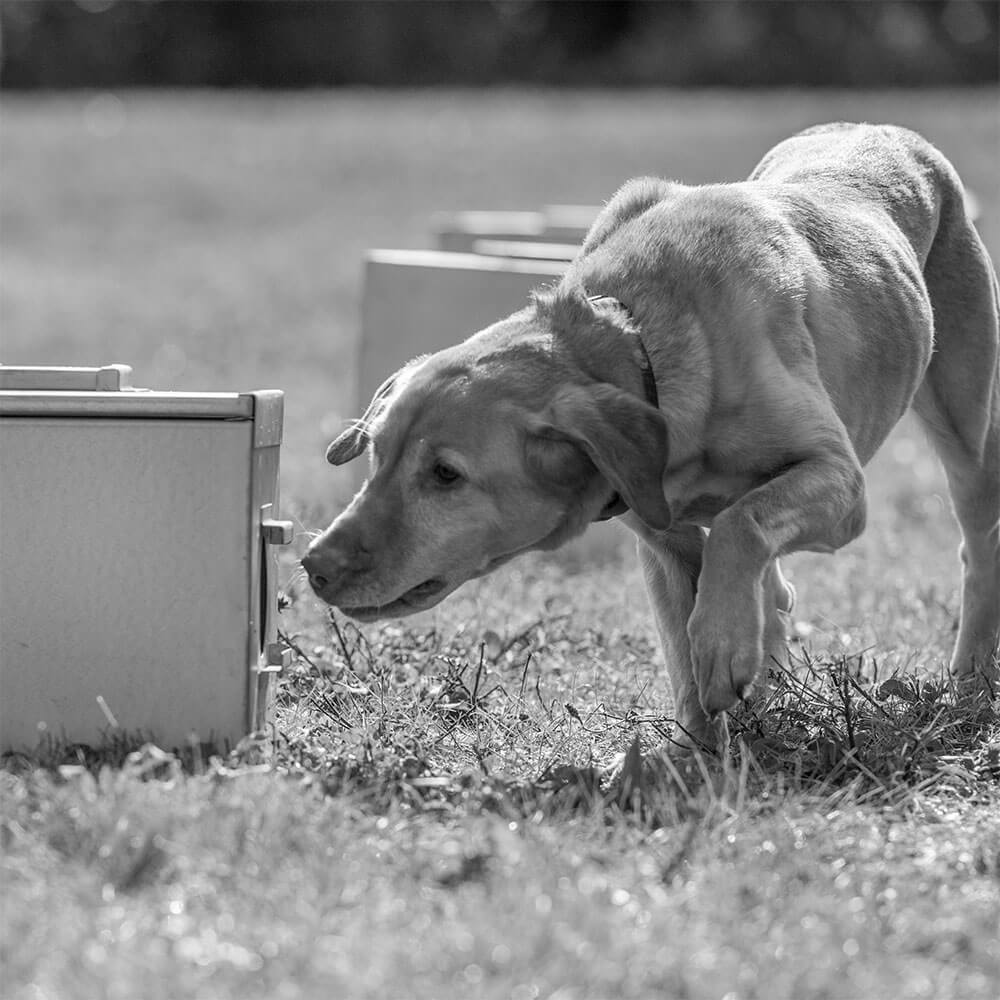Research Activities
Research at REST[ES] involves the placement of donors on the soil's surface or within shallow graves, in order to observe and study the natural phenomena of decomposition in typical forensic scenarios. Studies will take place throughout the year to determine the impact of season and weather on the rate of body decomposition.

Kelland Sundahl/NSMES Forensic Evidence Specialist
REST[ES] will carry out studies on the following topics and applications:
- decomposition odour to understand how cadaver-detection dogs locate victim remains;
- the post-mortem microbiome as a potential tool for estimating time since death;
- soil chemistry to identify chemical markers of body deposition;
- the impact of vertebrate and invertebrate scavengers on body decomposition;
- vegetation as surface indicators of clandestine burials;
- tracking and archaeological recovery; and more!
The establishment and operation of REST[ES] is only made possible through the generous and altruistic act of whole body donations. Donors will allow researchers at REST[ES] to test the effect of a northern climate on our ability to locate human remains, estimate their time since death and identify victim remains. Additionally, donors will provide an accurate and realistic training environment for personnel involved in death investigations. Such research and training has never been carried out in Canada.
